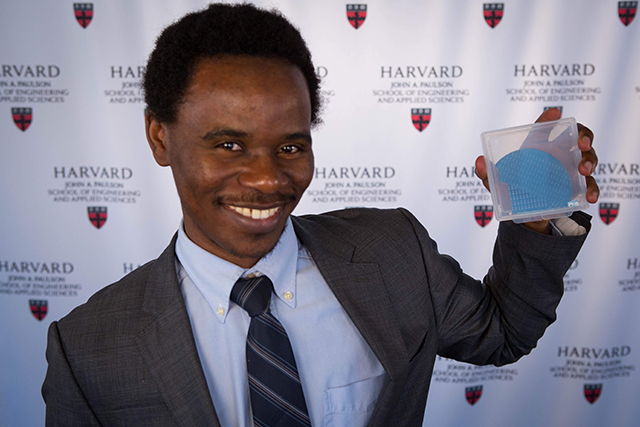
“Microfabricated Electrodes for Electric Field Perturbation of Protein Dynamics”
Daniel Getega, S.B. ’19, electrical engineering
Advisors: Doeke Hekstra, Assistant Professor of Molecular and Cellular Biology and of Applied Physics, Evelyn Hu, Tarr-Coyne Professor of Applied Physics and of Electrical Engineering, and Jiangdong Deng, Associate Director of the Center for Nanoscale Systems
Proteins function due to the internal motions of their structural units. By observing and modeling these motions, researchers could better understand proteins and their internal dynamics. Harvard researchers have used X-ray crystallography to observe these motions and patterns, but the electrodes currently used for these experiments are not suitable for the type and range of protein crystals under experimentation. Getega used planar microfabrication techniques to create tiny three-dimensional electrodes from heavily doped silicon. The electrodes can be customized for any crystal size under experimentation and are supported in a ‘housing’ that allows the protein crystals to retain their moisture during the experiment. While the electrodes he developed are only a few microns in size, they can provide the necessary voltage for X-ray crystallography and ensure that crystals are held firmly in place, improving the precision and throughput of these experiments.
“The biggest lesson I learned from this project is that manufacturing something for the first time requires patience and persistence, as nothing works the way you want it to even when the procedure seems straightforward,” he said.